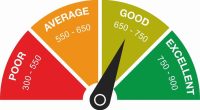The Indian stock markets were highly volatile this year. The Russian invasion of Ukraine, China-Taiwan tensions and rising worldwide interest rates have resulted in higher market volatility. Mutual fund managers are cautious and increase exposure to large-cap stocks across many mutual fund schemes. It helps tide over market volatility even as large-cap stocks remain wealth creators over the long run. Why are mutual fund managers focusing on large-cap stocks?
Why do investors prefer large-cap funds?
Large-cap funds invest a minimum of 80% of their assets in large-cap stocks. It is stocks of large, well-established companies that can handle an economic downturn compared to mid-sized and smaller firms. Moreover, large-cap companies are in the top 100 by market capitalisation.
Many investors prefer large-cap funds as they offer stability to your portfolio. Moreover, large-cap funds are wealth creators over the long run. The Association of Mutual Funds in India (AMFI) publishes the list of the top 100 companies by market capitalisation.
As per ICRA data, India’s large-cap segment generated a CAGR (Compound Annual Growth Rate) of 11.4% over the past ten years and an 11.6% Compound Annual Growth Rate over the previous five years.
Many risk-averse investors with a longer time horizon prefer large-cap funds. However, pick large-cap funds that have consistently outperformed their benchmark over three or five years. Do opt for large-cap funds with a lower expense ratio which is the cost of managing the mutual fund to increase overall returns over time.
Why are mutual fund managers focusing on large-cap stocks?
Mutual fund managers, just like investors, are focusing on large-cap stocks for their mutual fund schemes to beat market volatility. For instance, fund managers are picking large-cap stocks for their Flexi-Cap funds, Large and Mid-Cap funds and Multi-Cap funds.
The trend shows mutual fund managers want to play it safe and stick with blue chip stocks. Moreover, market volatility has frightened the strongest of investors. Fund managers are more exposed to large-cap stocks even for their Flexi-Cap mutual funds.
Mid-cap stocks and small-cap stocks are vulnerable to economic downturns. Hence money flows into the so-called safer categories such as large-cap stocks. For example, large-cap funds have seen total inflows of Rs 14,247 crore from January this year. Moreover, Large and Mid Cap funds are sticking to an average allocation of 60:40 for large and mid-cap stocks.
Many investors have invested heavily in Flexi-Cap and Multi-Cap funds this year. It has exposure to stocks across market capitalisation in its portfolio. However, fund managers are increasing exposure to large-cap stocks even in these categories.
Large Cap companies have performed well as compared to mid-cap, and small-cap companies post the pandemic. Moreover, mutual fund managers see good opportunities in the current volatile markets. The risk-reward ratio and earnings outlook are better for large-cap companies than for mid-cap and small-cap companies. Finally, mutual fund managers invest in large-cap stocks as opportunities are limited in the mid-cap and small-cap spaces.
For any clarifications/feedback on the topic, please contact the writer at cleyon.dsouza@clear.in

I write to make complicated financial topics, simple. Writing is my passion and I believe if you find the right words, it’s simple.





